From a cottage on the outskirts of Moscow, electronic musician Maria Teriaeva has mastered something rare: distinctive prose embedded within the bold clicks and plucky arpeggios of a Buchla system. Mechanical yet lush, contemplative but tinged with something Hitchcockian, Teriaeva carves an experimental path through the corridors of IDM and pop.
Conservatory of Flowers first emerged in 2020, just a month into the global pandemic. In hindsight, the record feels like a last journal entry of a sonically bustling life before dropping off a moment. Interludes of cello, bass flute, saxophone, and trumpet are composed and arranged by Teriaeva. These orchestral anchors swell and drone, threading the album with a collaborative depth.
Now calling Paris, France, her home, Teriaeva has had a trajectory that is both unusual (a 2015 graduate of the Red Bull Music Academy), expected (guitarist for the indie pop band Naadia), and process-oriented—trading formal training in classical guitar for a self-education in synthesis.
The last years have brought a quiet international notice with critical picks across airwaves, including music featured on the William Basinski episode of BBC Radio 3's Unclassified. (Real ones know.) This new pressing marks her first release on a US-based label (Curious Music) and arrives as a double LP, featuring bonus tracks and remixes.
In winter 2025, Sayan-Savoie was released, where we see a fiercer, sharper Teriaeva. Wonderfully suspenseful with an underlayer of intentional joy (with a very memorable video of friends in the French Alps), "What Is to Be Done?" feels like a half-decade bridged treatise for Flowers' "How Are You Feeling?" These open-ended questions are invitations for the listener to dig into their own inner life, as Teriaeva shares hers.
We caught up over email to take stock of the years between 2020 and 2025, with Teriaeva writing from France.
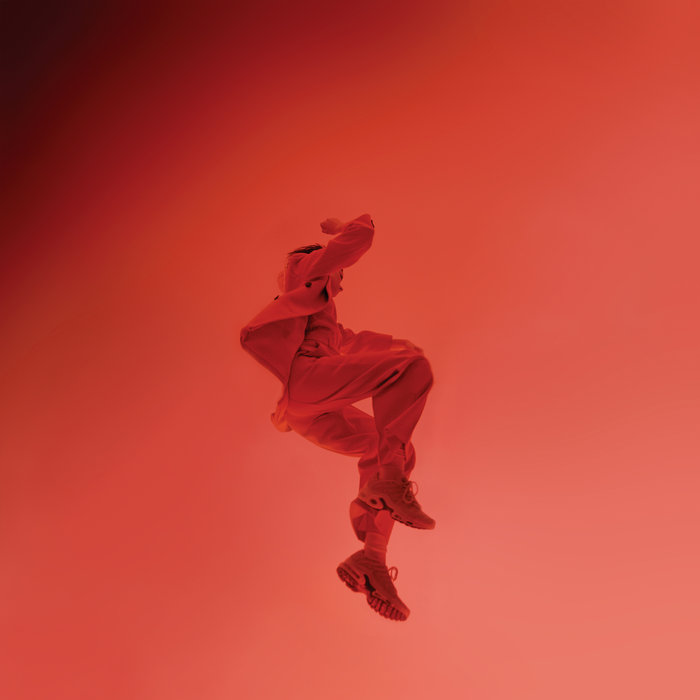
Carolyn Zaldivar Snow: Hi, Maria. How are you doing today? Where are you writing from? What does it sound like?
Maria Teriaeva: Hi! I'm in Paris, at home. It's incredibly hot here. The city is pretty empty because it's vacation month, not many tourists, so I manage to have a little mini-break without even leaving the city.
Carolyn: I am glad this record had so much interest that Conservatory of Flowers is in a second pressing. Is that surprising for you? Particularly seeing your work in the hands of listeners as physical media?
Maria: Thank you so much! It really was a pleasant surprise for me, especially since the album came out just five years ago, so fairly recently. I'm happy that Curious Music reached out to me, and we could give the album a fresh breath with a new design, an added track, and the chance to look at the release five years later with fresh eyes. I think it still feels pretty fresh.
Carolyn: Do you collect vinyl? What is in your collection? What are you listening to?
Maria: I had a small vinyl collection, which stayed in Moscow after I emigrated. I moved under such stress that I can barely remember what stayed there. But the first things that come to mind: St. Vincent, Midori Takada, and a record of bell music, I think it was called Arkhangelsk Bells. Nowadays, I sadly don't listen to vinyl at all, though it's funny that I live in a part of Paris surrounded by vinyl shops—about fifteen to twenty of them, from iconic to new independent ones, often specialized by genre.
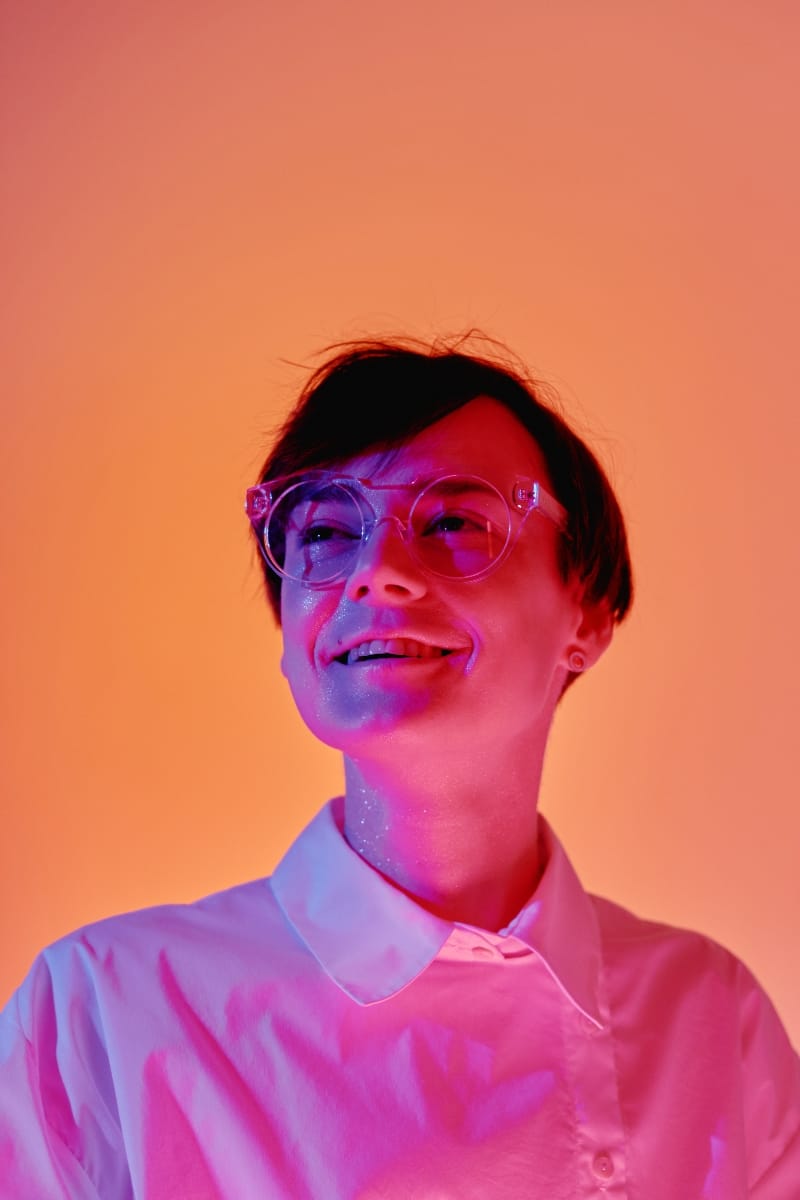
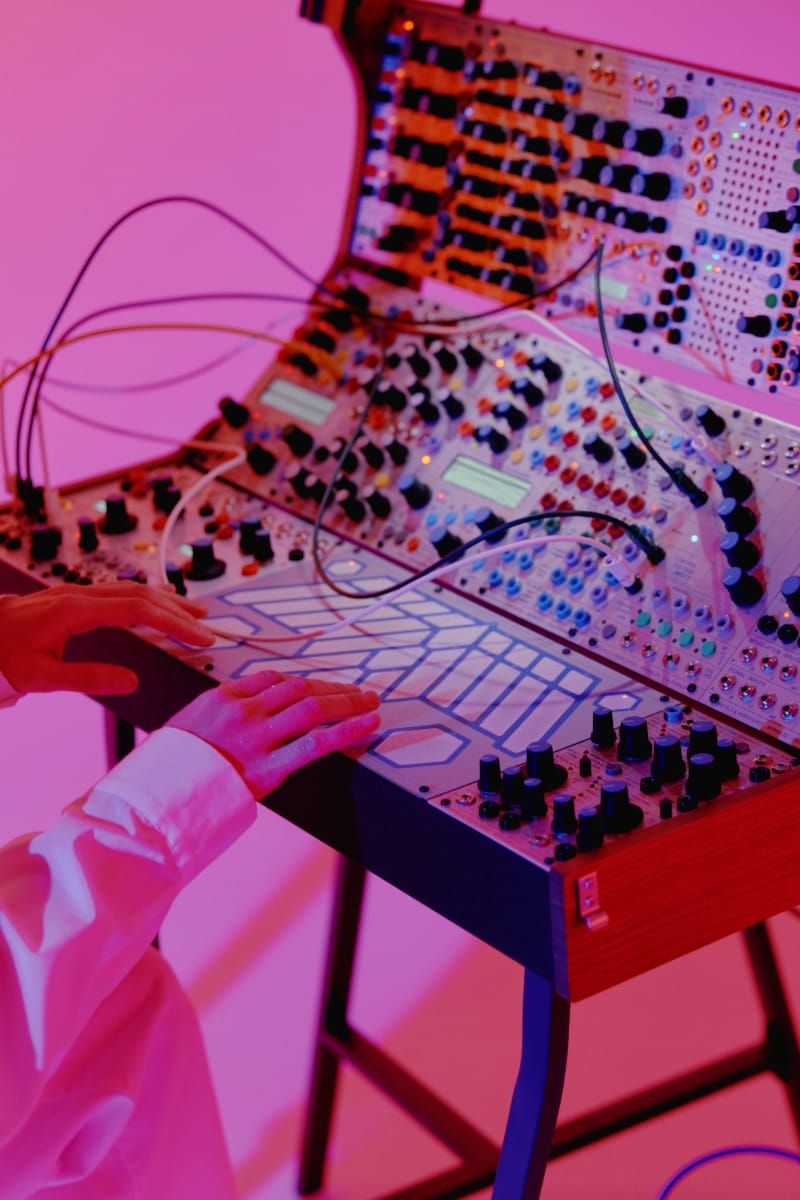
Maria Teriaeva and her Buchla. Photos by Andrey Raputo.
Carolyn: This record feels like a highly technical and vivid score for an A24 film. Your compositions dance between ominous and hopeful. Tell me about this cottage you worked from, your surroundings as you pieced Conservatory of Flowers together.
Maria: Thank you, what a lovely association! I often hear that my music sounds cinematic. I mostly worked on the album in a countryside cottage near Moscow, where it was very quiet. It was mainly summer, and there I could really focus on music and escape the city bustle. The Buchla system was easy to move—I would just take it and my headphones, and that was enough; no studio conditions were necessary. Anxiety and hope, I think, reflect my general state, but interestingly, when I recently re-listened to the album, it seemed quite carefree and even naive, like it was written by someone free from any problems.
Carolyn: You worked with several instrumentalists—cello, trumpet, saxophone—how did that go? Did the compositions start as improvisations among friends?
Maria: I understand what you mean—when you gather with a group and start improvising with musicians. But for this album, all parts were written by me beforehand. Then we went into the studio for one day to record everything.
Carolyn: I often argue for the responsiveness of Eurorack synthesizers as an improvisational instrument, like any other instrument. How do you feel about your Buchla system when paired with more traditional instrumentation?
Maria: Exactly—both Buchla and Eurorack are very sensitive and great for improvisation. I'd even say Buchla is even more sensitive. But I started combining traditional instruments with Buchla because it seemed like they could complement each other timbrally, and it's interesting to mix them. I started with guitar, then I liked trombone and gusli. Later, it seemed logical to give melodic parts to wind and string instruments, and do the rest on modulars. It's a kind of compromise for the listener—something very familiar paired with something completely unknown.
Carolyn: Your midpoint track asks, "How Are You Feeling?" Tell us how you were feeling in 2020, and now in 2025?
Maria: Pretty much the same: very anxious, but still hopeful for a good future.
Carolyn: How have you evolved since 2020, as far as tech and recording techniques? I know for myself, I go through seasons where I might want different tools and outcomes. I have recently abandoned my Eurorack synthesizer for an ARP 2600. How about you?
Maria: Oh, that's wonderful! I think it's a very natural desire—to try new instruments, find favorites—I know it well. Before emigrating, when CoF was recorded, I was freer to buy, sell, and try new instruments, invite musicians for improvisation, and experiment in the studio—everything was at hand: community, friends, engineers, new musical inventions firsthand. After emigrating, the situation completely changed: I ended up alone in a small French town, where I wrote the album Sayan-Savoie over a year with whatever I had at the time. So the approach changed—yes, "from abundance to limitation," I'd say. I hope it allowed me to dive a bit deeper into Buchla and get a little more out of it than usual.
Carolyn: I'm curious how you chose to work with Buchla? I believe I'm older than you and remember being a kid watching public broadcasting in the US—a children's show called 3-2-1 Contact, and they featured Suzanne Ciani with her Buchla system in a segment in the 1980s. I wasn't quite sure what was going on, but it sparked a lot in me.
Maria: I chose Buchla as an adult. At that point, I had been a guitarist in several bands and had been doing music seriously for about ten years, but I felt confined in the role of a guitarist. I just heard Buchla and fell in love with the timbres, the idea, the design—I knew it was exactly what I needed, and I wanted to learn this instrument. I left all the bands and started a solo career with Buchla.
Carolyn: There is a bonus track in this reissue—"Amber and Ash." What was the impetus to include the track?
Maria: Some musicians make hundreds of demos and then choose what goes on the album. When I write a track, I immediately know if it will go on the album; very rarely do I finish a track and not include it. The track "Amber and Ash" was somehow excluded back in 2019–2020, though if you listen to it now, it's definitely from that period and rightfully belongs on the album. You could say it just waited for its moment.
Carolyn: When do you know a project is finished?
Maria: If we're talking about an album, it's already kind of an intuitive thing. My whole life is divided from album to album. Maybe it's a feeling of having expressed yourself.
Check out more like this:
 The TonearmCarolyn Zaldivar Snow
The TonearmCarolyn Zaldivar Snow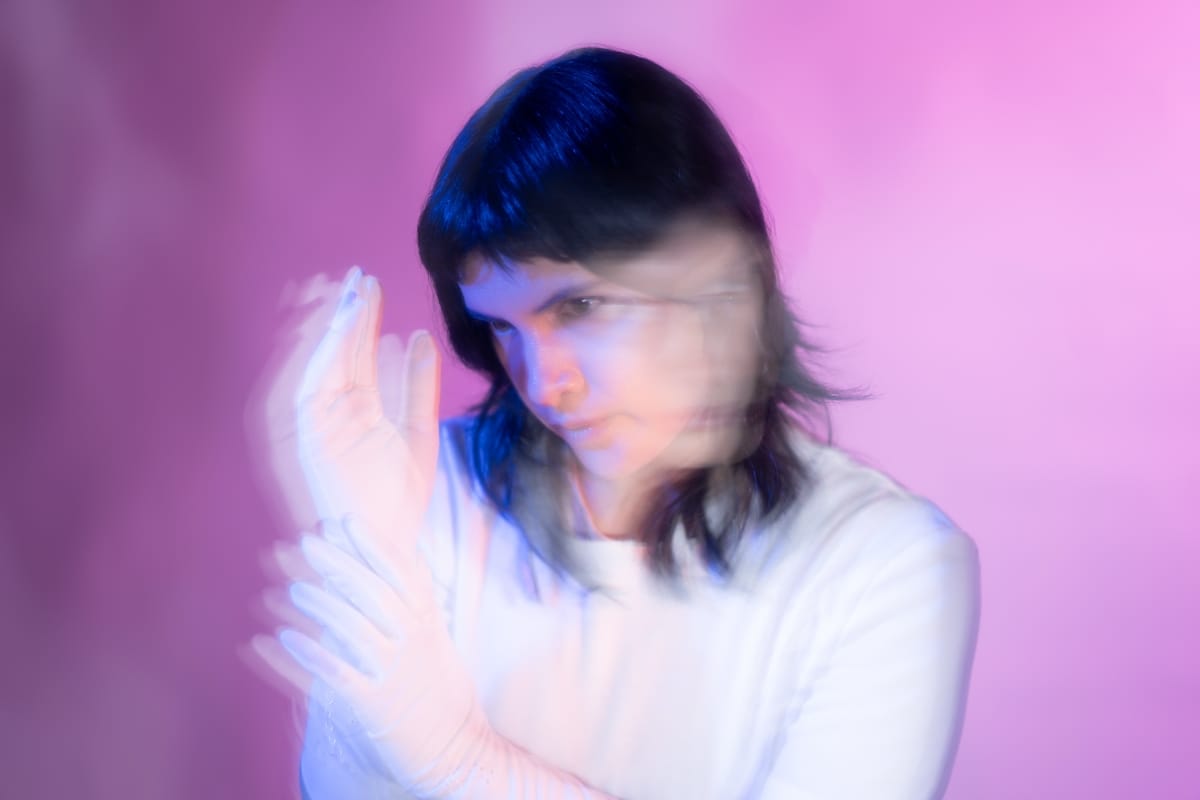
 The TonearmLawrence Peryer
The TonearmLawrence Peryer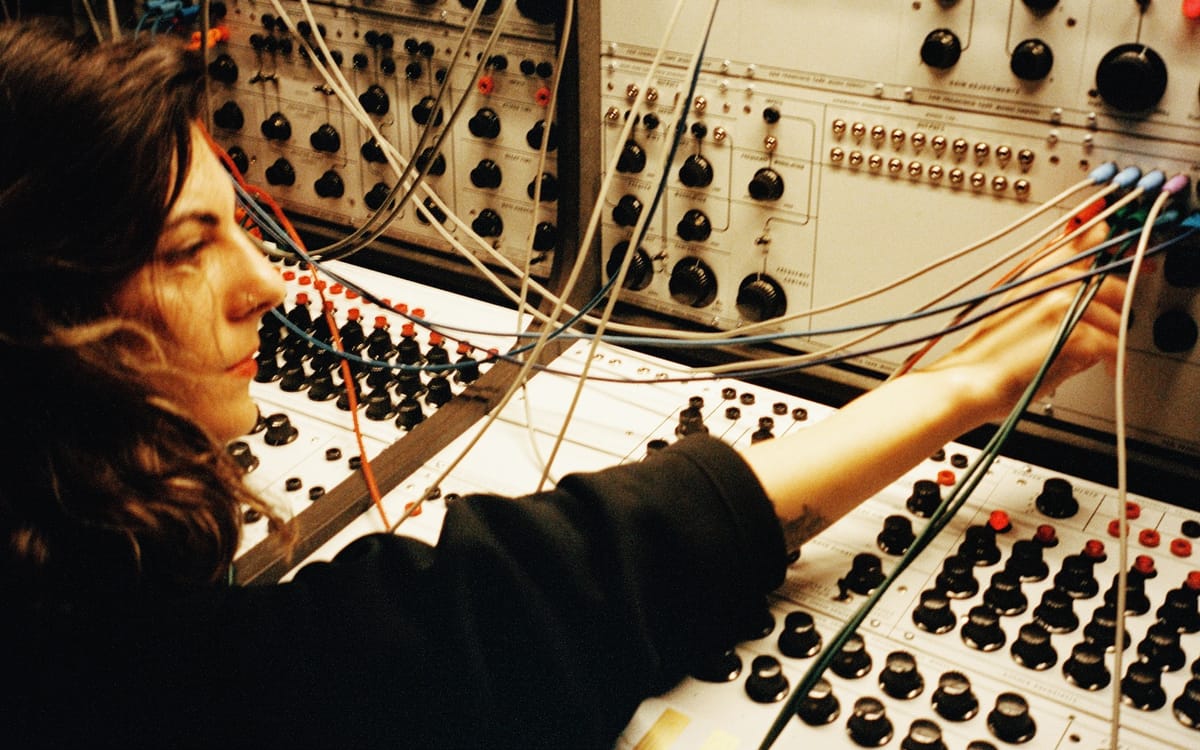


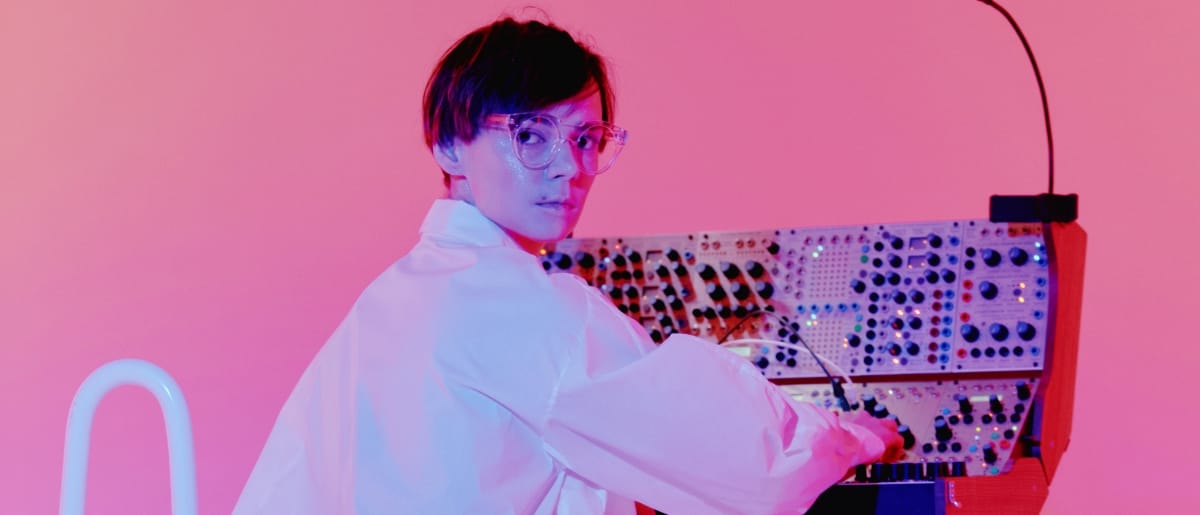
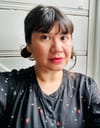
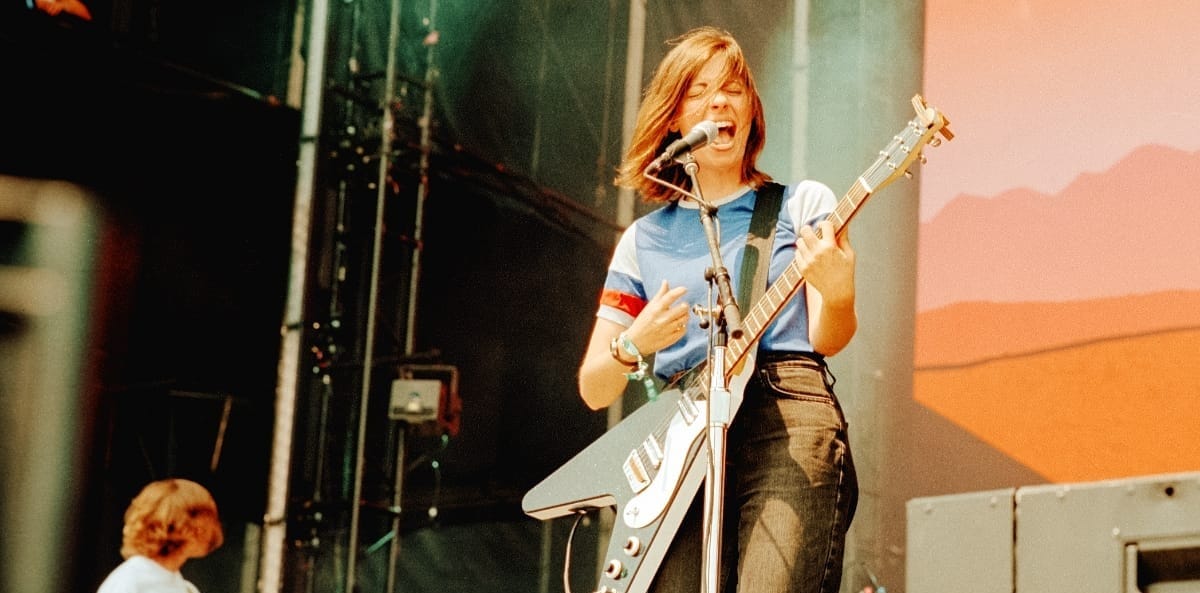

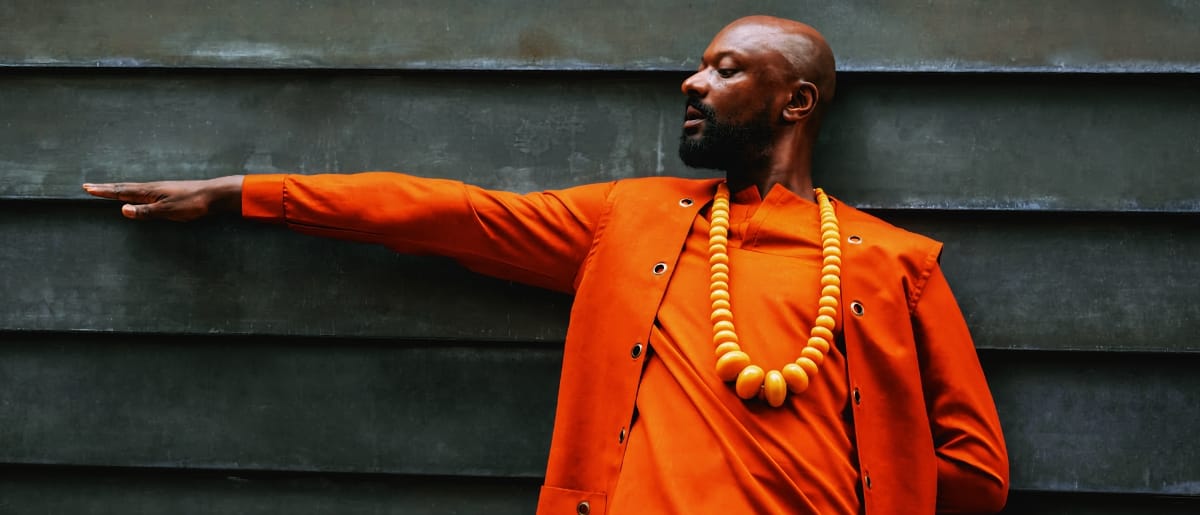
Comments